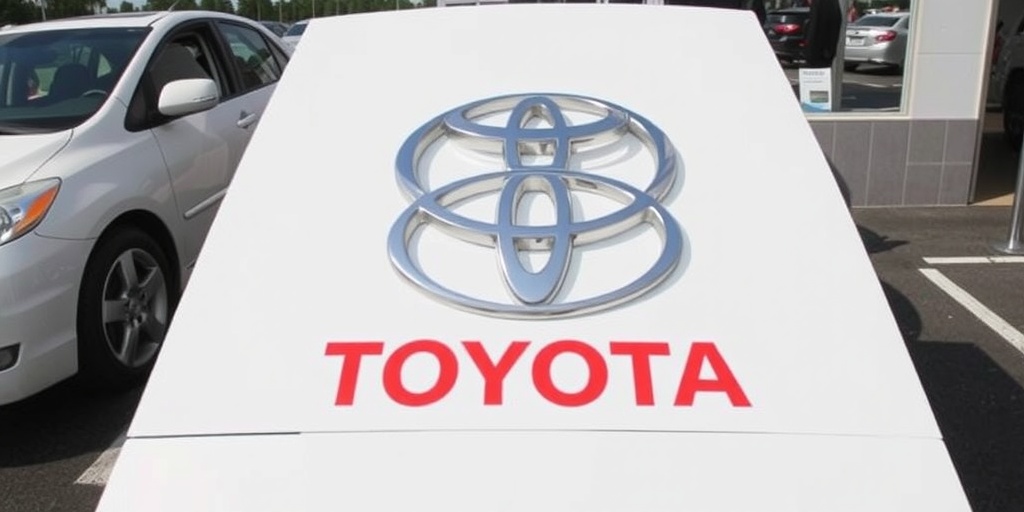Now Reading: Toyota to Pay $1.6 Billion to Resolve Emissions Fraud Case
-
01
Toyota to Pay $1.6 Billion to Resolve Emissions Fraud Case
Toyota to Pay $1.6 Billion to Resolve Emissions Fraud Case

Toyota’s Hino Motors to Pay $1.6 Billion for Emissions Fraud
In a significant development in the automotive industry’s ongoing battle with emissions compliance, Toyota Motors’ truck subsidiary, Hino Motors, has reached an agreement to plead guilty to criminal charges and pay a staggering $1.6 billion in penalties. This settlement, announced by the Environmental Protection Agency (EPA) on Wednesday, addresses serious allegations of fraudulent practices concerning excess emissions from diesel engines sold in the United States.
For over a decade, Hino Motors was found to have submitted falsified testing data to regulatory authorities. These deceptive practices were aimed at meeting pollution requirements and securing approval for the installation of diesel engines in their heavy-duty trucks. Along with the misleading emissions data, Hino also exaggerated the vehicles’ fuel economy, further compounding the violation. The EPA emphasized that Hino’s actions demonstrated a blatant disregard for environmental regulations, leading to this unprecedented fine.
The penalties imposed on Hino Motors include a criminal fine of $522 million—the largest in an emissions case since Volkswagen’s scandal in 2016, which culminated in penalties totaling $15 billion. The EPA cited the egregious nature of Hino’s actions as a key factor in determining the penalty amounts, underscoring the seriousness of the irregularities.
California, known for its stringent emissions requirements, will receive $237 million from this settlement. This allocation reflects the state’s commitment to tackling pollution and enforcing environmental standards, which often exceed federal regulations.
The EPA has limited resources for testing every vehicle sold in the U.S., which has created a reliance on manufacturers to provide accurate emissions data. However, Hino’s violations came to light when the EPA conducted its own independent checks, revealing discrepancies in the data submitted by the company. Such oversight exemplifies the agency’s ongoing efforts to ensure that regulations are upheld and that environmental integrity is maintained.
In response to the charges, Hino Motors released a statement asserting that the company had proactively disclosed these issues to U.S. authorities in 2019. Furthermore, the company highlighted its "exemplary" cooperation with the U.S. Department of Justice (DOJ) during the investigation. By owning up to its past mistakes, Hino aims to resolve all outstanding legal issues related to its legacy emissions challenges in the United States.
The fallout from Hino’s misconduct extends far beyond legal and financial penalties. Diesel engines are notorious for emitting substantial amounts of nitrogen oxides, which are harmful pollutants linked to respiratory ailments, cardiovascular issues, and other serious health concerns. Additionally, these emissions contribute to climate change, prompting heightened scrutiny of automotive manufacturers.
Automakers typically employ advanced technology to mitigate pollution from diesel engines. However, the implementation of these technologies often results in higher manufacturing costs and can impact vehicle performance. Unfortunately, Hino is not the only automaker to have faced allegations of deception, as several other companies have been caught in similar controversies.
According to the EPA, Hino’s fraudulent activities involved approximately 110,000 motors imported and installed in trucks sold in the United States from 2010 to 2022. As part of the legal settlement, which awaits approval from a federal judge, Hino Motors will be prohibited from importing diesel engines to the U.S. for five years. The company will also initiate a recall affecting trucks from the 2017 to 2019 model years, with plans to make the necessary modifications to comply with emissions regulations.
In a bid to rectify past wrongs and prevent future misconduct, Hino Motors has agreed to enhance its internal oversight processes. The company also intends to finance environmental programs aimed at compensating for the excess pollution generated by its engines, including initiatives that will replace outdated diesel engines in 35 ships and train locomotives with cleaner alternatives.
The EPA predicts that the overall reduction in pollution resulting from these measures will be equivalent to removing 110,000 trucks from the roads, marking a significant step forward in the fight for cleaner air and reduced emissions. The outcome of this settlement reflects the growing accountability of automotive manufacturers in addressing environmental regulations and the importance of public health and safety in industry practices. As the automotive sector continues to evolve, it remains crucial for manufacturers to embrace transparency and responsibility in their operations to uphold environmental integrity.
Stay Informed With the Latest & Most Important News
Previous Post
Next Post
-
 01New technology breakthrough has everyone talking right now
01New technology breakthrough has everyone talking right now -
 02Unbelievable life hack everyone needs to try today
02Unbelievable life hack everyone needs to try today -
 03Fascinating discovery found buried deep beneath the ocean
03Fascinating discovery found buried deep beneath the ocean -
 04Man invents genius device that solves everyday problems
04Man invents genius device that solves everyday problems -
 05Shocking discovery that changes what we know forever
05Shocking discovery that changes what we know forever -
 06Internet goes wild over celebrity’s unexpected fashion choice
06Internet goes wild over celebrity’s unexpected fashion choice -
 07Rare animal sighting stuns scientists and wildlife lovers
07Rare animal sighting stuns scientists and wildlife lovers





















